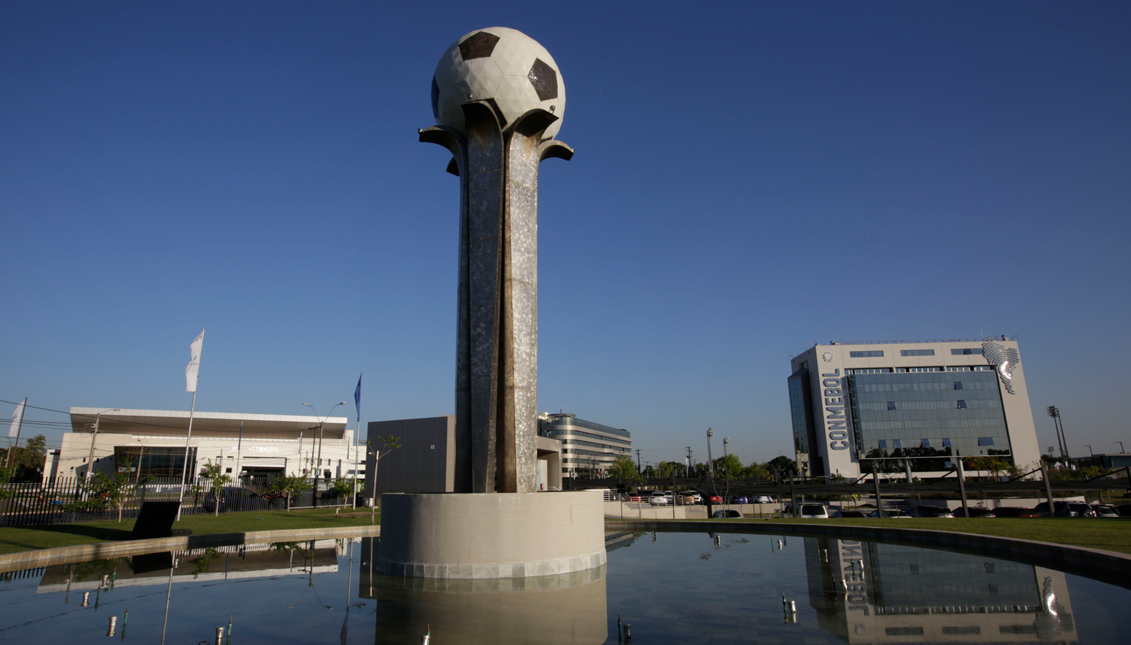
To play or not to play? That’s the question surrounding Copa America in 2021
The South American soccer tournament has changed host nations twice in less than two weeks, and players have called for its cancellation.
The Copa America is a continental FIFA tournament to determine the best national side in South America, and is scheduled to start June 13.
Originally, the tournament was supposed to be played last Summer, but the COVID-19 pandemic postponed it along with other international competitions like the UEFA European Championship (Euros) and the Tokyo Olympic Games.
Even though this edition of the Copa America was delayed, it still comes soon after a string of back-to-back tournaments. The 2021 contest marks four times in the last six years that South America’s 10 national teams met for this purpose.
Since 1987, the competitions have been held every two years, but two decisions by CONMEBOL, the continent’s governing body of soccer, threw off the schedule.
After the 2015 edition in Chile, the governing body wanted to have another tournament the following year to celebrate the centennial of the Copa America.
Brazil hosted the event in 2019, but CONMEBOL and UEFA reached an agreement to have their regional contests sync so they are played in the same year.
The Euros are played every four years and 2020 was the next Summer competition to take place. South American leaders saw it fit to sync up the calendars sooner rather than later.
All teams from the confederation automatically qualify for the Copa America. Guyana, French Guiana and Suriname participate in CONCACAF, the North American and Carribean confederation, despite being located geographically in South America.
For the tournament to field three groups of four teams, they invited two national sides from other regions. Australia and Qatar — host of the 2022 World Cup — were offered the chance to compete in the tournament before its postponement.
They still intended on participating this year, but withdrew in February because the Asian Football Confederation, which they both part of, moved World Cup qualifier dates up in the calendar.
No sides are replacing them, and 2021 will be the first year since 1991 that the Copa America is played with just 10 teams.
There would be two groups of five teams and two countries were going to co-host the event.
Argentina would top group A, or the South Zone. They are joined by Bolivia, Chile, Uruguay and Paraguay.
Colombia heads group B, or the North Zone. Brazil, Venezuela, Ecuador and Peru would accompany them for this stage.
It would also have been the first time in the tournament's history that two countries hosted games, but a series of protests and poor work combating the pandemic stopped this from happening.
Colombians took the streets in late April to oppose a tax hike promoted by President Iván Duque Márquez, as well as his management of the COVID-19 crisis.
On May 20 CONMEBOL removed Colombia from co-hosting the Copa America and Argentina offered to take on responsibility for the entire competition.
Their Sports Minister, Ernesto Lucena, tried to persuade the governing body to delay the tournament further into the summer.
Argentina withdrew from hosting the Copa America on May 30, after their government came to the late realization that their country’s health crisis could not stand to host such a large event.
A greater percentage of Argentinians are vaccinated compared to Colombians, but they averaged nearly 12,000 more new cases a day in the past week.
Protests have also been organized across the country against the government’s new lockdown and restriction measures.
Having the contest be left with no host nation two weeks before its intended start date has made supporters believe it would be completely scrapped.
Rumors of negotiations between CONMEBOL and the U.S. or Chile to host the tournament also began to surface.
Brazil was announced as the new host of the tournament the day after Argentina pulled out.
The reasoning behind the switch was down to Brazil having the necessary infrastructure to properly host the Copa America with such short notice.
They were the home of the 2014 World Cup, the 2016 Summer Olympic Games and the 2019 Copa America, where they were crowned champions.
With rising case numbers being a concern for the other two hosts, the selection of Brazil to replace them caused many to scratch their heads.
They have the third highest number of registered COVID cases in the world, and are second for recorded deaths.
Right-wing president Jair Bolsonaro said his cabinet unanimously agreed to host the tournament, and that there would be no health threat.
RELATED CONTENT
“From the beginning I have said this about the pandemic: I regret the deaths but we have to live. If everyone just stays home then farmers should stay home. And I want to see how city dwellers will survive,” he said.
Stadium infrastructure is only being prioritized because CONMEBOL wants to have fans present, even in a limited capacity, to generate revenue from ticket sales.
If all parties agreed to not have fans attend the games because of the health risks, then the Copa America could be held and fans could stream or watch it on television.
Most possibilities would be preferable for fans except for outright cancellation of the event, and waiting for the 2024 competition.
For legends of the game like Argentina’s Lionel Messi and Sergio Agüero, both 33, this may be their last chance to get their hands on the prestigious trophy.
If the higher ups in CONMEBOL were desperate to have fans present at the event, then the U.S. was the best option. The country hosted the centennial edition in 2016.
It was a possibility because the Copa America is scheduled to end when the CONCACAF Gold Cup starts. All Gold Cup matches were also concentrated in the southern part of the country.
With many South American immigrants living mainly along the U.S.’s East Coast, the region with the best vaccination rate in the nation, and could have worked out for fans, players and administrators.
Mexico not being invited means they cannot draw in the same profits they were used to seeing in past editions because the country is one of the largest media markets in the world for soccer.
Even if they asked to compete in the CONMEBOL tournament, they would not be able to send their first team due to other commitments.
Their under-23 squad will be fielded for the Olympics in Tokyo, and they will want to show a strong performance in the Gold Cup as the current title holders.
Mexico participated in every Copa America between 1993 and 2016.
The best way to ensure that the Copa America does not become a super-spreader event or interrupt World Cup qualifiers is to cancel the competition.
Moving it to the U.S. would be more sensible when factoring in COVID-19, but there is now less than two weeks to coordinate the third hosting change and the country is still far away from achieving herd immunity.
Uruguayan star Edison Cavani is the most famous active player so far to call for the tournament to be canceled.
“We have neither voice nor vote. We have no say in certain things... We have to put forward many other things that are important as well. Let's not forget that it is a pandemic and everything is a chain.,” he said.











LEAVE A COMMENT: